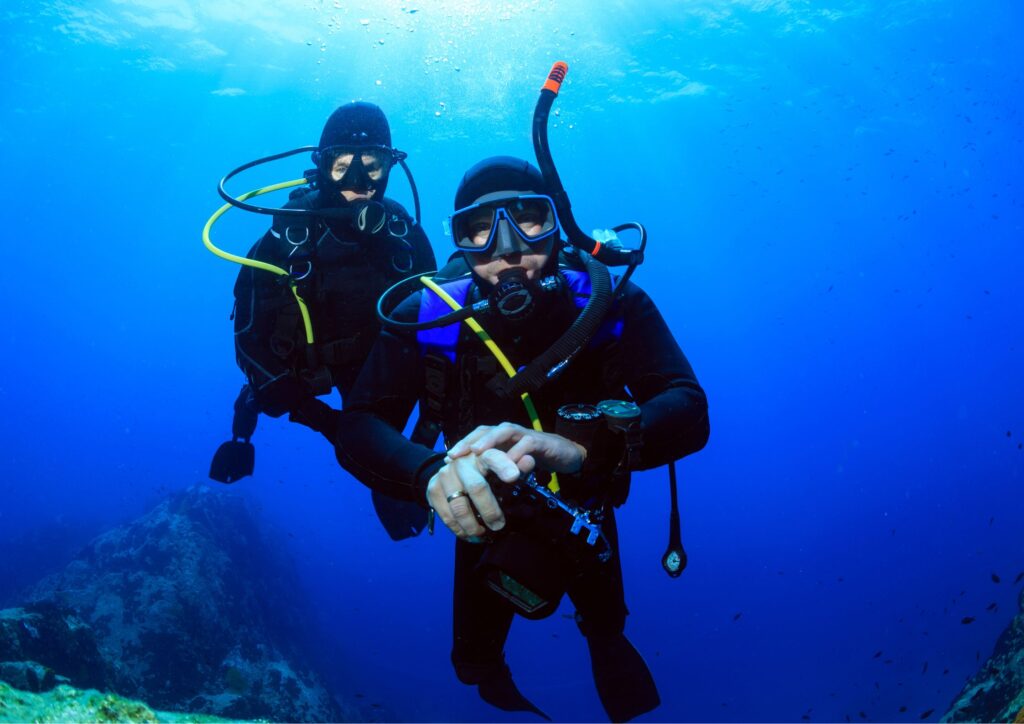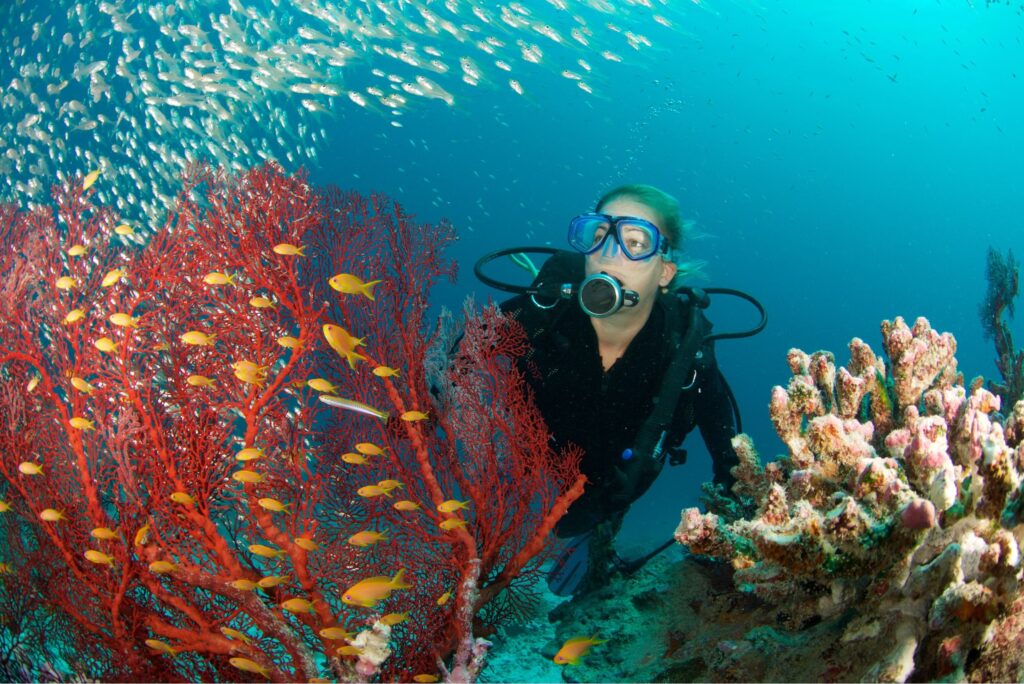Diving into the mesmerizing depths of the ocean can be a serene and exhilarating experience, but the key to truly enjoying your underwater adventures lies in mastering buoyancy skills. Whether you’re exploring the vibrant corals off the coast of Bali or simply seeking a stress-free diving experience, understanding and perfecting your buoyancy can transform your dives from chaotic to calmly blissful. This ultimate guide will take you through essential dive techniques, helping you refine your buoyancy control and elevate your diving adventures to new heights while ensuring your underwater journey remains enjoyable and fulfilling.
Understanding Buoyancy: The Basics
Buoyancy is the force that allows divers to float or sink in water, and mastering buoyancy skills is crucial for stress-free diving experiences. Understanding the principles of buoyancy begins with recognizing two main types: positive and negative buoyancy. Positive buoyancy helps divers float effortlessly at the surface, while negative buoyancy allows for smooth descents. Achieving neutral buoyancy, where a diver neither sinks nor floats, is essential for exploring underwater environments, such as the stunning reefs of Bali. When you master buoyancy through the right dive techniques, you enhance your control underwater, leading to a more enjoyable and relaxed diving adventure.
The Importance of Buoyancy Skills in Diving
Buoyancy skills are paramount for any diver looking to enjoy stress-free diving experiences. Mastering buoyancy allows divers to maintain their position in the water, reducing the risk of damaging fragile marine ecosystems and providing greater comfort underwater. Proper buoyancy control enhances safety, enabling divers to conserve air, reduce fatigue, and focus on the surrounding beauty rather than struggling with equipment.
In popular diving destinations like Bali, where vibrant coral reefs and teeming marine life await, having solid buoyancy skills not only enriches the dive experience but also fosters greater respect for the underwater environment. Investing time to improve your buoyancy skills is key to unlocking the full potential of your diving adventures. Whether you’re a beginner or an experienced diver, refining these techniques will significantly enhance your enjoyment and ecological awareness while exploring stunning underwater worlds.
Essential Dive Techniques for Perfect Buoyancy

Mastering buoyancy skills is essential for achieving a stress-free diving experience. By focusing on a few key dive techniques, divers can enhance their underwater control and comfort. First, perfect your body position; maintaining a streamlined profile helps minimize drag and conserve energy. Next, learn to use your BCD (Buoyancy Control Device) effectively by adding or releasing air to maintain neutral buoyancy. Additionally, practice controlled breathing—slow, deep breaths can help you adjust your buoyancy while providing relaxation. Finally, develop an awareness of your surroundings and equipment; this fosters confidence and ensures smoother dives. Enhancing these essential dive techniques will lead to greater enjoyment of Bali diving adventures, allowing you to immerse yourself fully in the breathtaking marine environment.
Practical Tips for Mastering Buoyancy Skills Underwater
To master buoyancy skills for a stress-free diving experience, start with proper weight management. Ensure you’re equipped with the right amount of weight; this can significantly affect your buoyancy control. Additionally, practice controlled breathing techniques, as inhaling and exhaling can help you rise or sink in the water column. Utilize a buoyancy control device (BCD) effectively; learn to add or release air smoothly to maintain your position underwater.
Regular practice during dives, especially in the stunning waters of Bali, will enhance your confidence and ability to maintain neutral buoyancy. Remember to always be aware of your surroundings. As you dive deeper, observe how your buoyancy changes with depth and local conditions. Prioritize relaxation, as tension can disrupt your buoyancy control. Engage in slow movements and adjustments to help your body adapt seamlessly to underwater dynamics. Consistent practice and mindful awareness will help you achieve buoyancy bliss on all your diving adventures!
Buoyancy Control Devices: Choosing the Right Gear
Choosing the right Buoyancy Control Device (BCD) is crucial for mastering buoyancy skills and ensuring a stress-free diving experience. When selecting a BCD, consider the type of diving you’ll be doing, such as the vibrant reefs of Bali, where lightweight options may be preferable. Look for features like adjustable straps, adequate lift capacity, and built-in weight systems to enhance comfort and control. A well-fitted BCD allows divers to effortlessly maintain their desired buoyancy, making it easier to execute various dive techniques. Prioritize quality and confidence in your gear, as this will directly impact your overall diving performance and enjoyment on every adventure.
Exploring Bali Diving: Buoyancy Challenges and Opportunities
Bali diving offers a rich and diverse underwater landscape, providing both challenges and opportunities to master buoyancy skills. The vibrant coral reefs and mesmerizing marine life invite divers to hone their dive techniques in a stunning environment. However, navigating Bali’s varying water conditions can present buoyancy challenges, especially for novice divers. To achieve a stress-free diving experience, it’s essential to practice adjusting your buoyancy as you explore different depths and currents. By learning to maintain neutral buoyancy, divers can avoid damaging delicate ecosystems while enjoying the breathtaking beauty beneath the waves. With patience and practice, Bali can be the perfect setting to refine your buoyancy mastery.
Common Mistakes and How to Avoid Them
One of the most common mistakes divers make is over-inflating their BCD, leading to an unstable buoyancy condition that can cause stress and anxiety underwater. To avoid this, ensure you practice proper breathing techniques, as controlled inhalation and exhalation can help maintain your buoyancy. Another frequent issue arises from unequal weight distribution; divers should securely balance their weights and gear to achieve a neutral position. Lastly, neglecting to check equipment before the dive can lead to unforeseen problems. Regularly review your dive gear and perform checks with a buddy to ensure everything functions correctly, contributing to a more enjoyable and stress-free diving experience in the beautiful waters of Bali.
Advanced Buoyancy Techniques for Experienced Divers
Advanced buoyancy techniques are essential for experienced divers looking to enhance their underwater experience in a seamless and stress-free manner. Mastering buoyancy skills not only allows divers to control their ascent and descent with precision but also enables longer and more enjoyable dives. Techniques such as pinpoint buoyancy control, dynamic finning, and breathing techniques can greatly influence a diver’s ability to float effortlessly at various depths. Utilizing equipment adjustments, like increasing or decreasing air in your BCD, can further fine-tune your buoyancy. As experienced divers explore the vibrant reefs of Bali diving spots, these advanced skills ensure a more exhilarating environment to fully appreciate the underwater beauty without the stress of losing control.
Dive into Buoyancy Bliss
In conclusion, mastering buoyancy skills is essential for achieving a stress-free diving experience. By understanding and applying the techniques outlined in this guide, divers can enhance their comfort and confidence underwater. Whether you are exploring the vibrant coral reefs of Bali or navigating through tranquil dive sites, a solid grasp of buoyancy will allow you to enjoy the beauty of the underwater world without unnecessary anxiety.
Remember that practice is key; the more you dive, the better you will become at fine-tuning your buoyancy control. As you embark on your diving adventures, keep in mind that mastering buoyancy is not just about skills; it’s about fostering a deeper relationship with the ocean. Embrace each dive as an opportunity to refine your techniques and appreciate the serene environment around you. With your new buoyancy skills, you’ll not only dive with ease but also take away unforgettable memories from your underwater explorations. Happy diving!

Honestly, there’s not much information to work with here. Can you provide more context about this blog post?
Hello May Chan, thank you for your feedback! I understand that the blog summary is indeed sparse, but we’re eager to share our story with you. Our blog post is actually a introduction to Eko Life Malaysia, a company empowering bicycle, ebike, and escooter enthusiasts through affordability, quality products, professional servicing, and community building. We’d be happy to provide more context and information about our products and services. Please feel free to reach out to us via email at [email protected] or call us at +65 6734 9373 for more information.
I’m having trouble understanding what this blog is trying to say. Can you summarize it for me?
Hi Ibrahim, thank you for reaching out! It seems that our blog might not have a clear summary. To provide you a better understanding, Eko Life Malaysia is a community that aims to empower bicycle, ebike, and escooter enthusiasts through affordable products, professional servicing, and community building. If you have any specific questions or need further clarification, please don’t hesitate to contact us at Tel: +65 6734 9373 or Email: [email protected]. We’d be happy to help!
It’s great to see a blog title, but I’m a bit disappointed that there’s no content to back it up. Fingers crossed that the post is better!
Hello Lian Jia, thank you for reaching out to us about your concern. We apologize if our blog title has failed to meet your expectations. I’d like to assure you that we’re working on publishing an engaging content related to our services. Please give us some more time and we hope you’ll find the content helpful. In the meantime, if you have any questions or would like more information about Eko Life Malaysia, feel free to contact us at Tel: +65 6734 9373 or Email: info@[insert domain name].